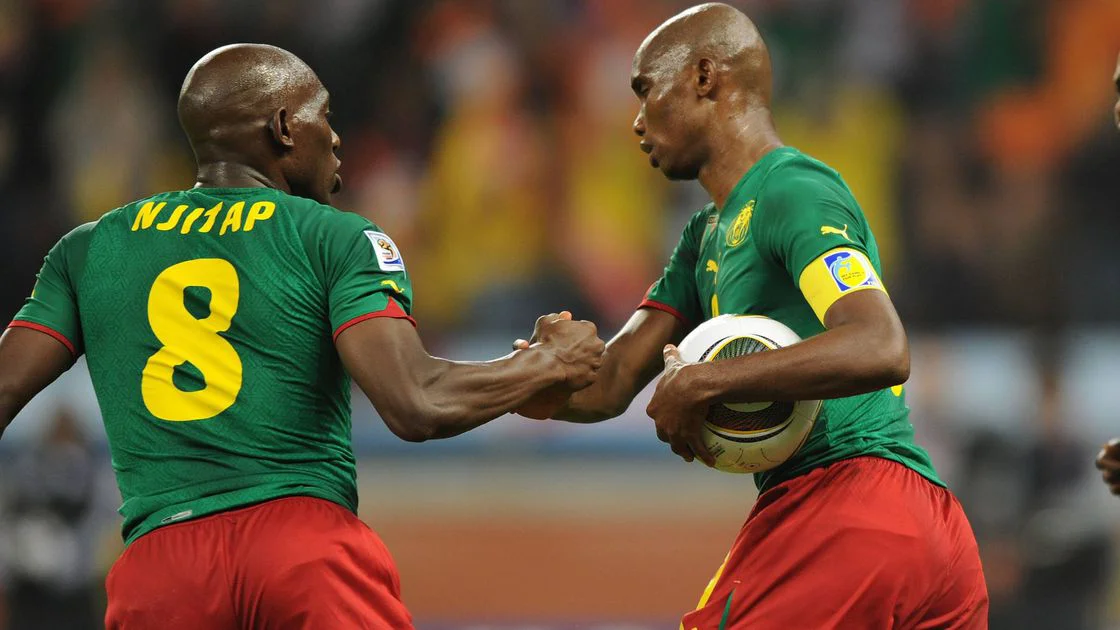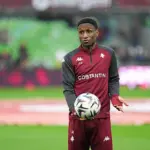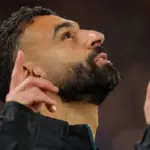Cameroon football in crisis as Eto’o and Njitap clash over leadership

Cameroonian football is in turmoil following an escalating conflict between Samuel Eto’o, president of the Cameroon Football Federation (Fécafoot), and Geremi Njitap, leader of the National Union of Cameroonian Footballers (Synafoc). The latest flare-up occurred after Fécafoot withdrew its approval of Synafoc, a move that has triggered a sharp and highly charged exchange between the two figures.
The dispute was sparked by a press release from Synafoc on 18 November, which came in response to Fécafoot’s decision to revoke the union’s approval just two days earlier.
In the statement, the union’s Steering Committee condemned the action, describing it as part of a long-running series of attempts to suppress players who challenge Eto’o’s authority.
“This decision, which was expected, is the latest act in a long series of malicious actions aimed at muzzling all the players in our football who dare to express an opinion different from that of the now potentate of Tsinga,” the statement read, referring to the district of Yaoundé where Fécafoot is based.
Although Eto’o and Njitap once enjoyed success together as players for Cameroon’s national team, their relationship has soured dramatically since Eto’o’s election to lead Fécafoot.
Tensions came to a head in July 2023, when rumors surfaced suggesting that Njitap could be the government’s choice to lead a potential Normalization Committee at the helm of Fécafoot, a position seen as an alternative to Eto’o’s leadership. This speculation was enough to make Njitap a target within Eto’o’s camp.
Njitap, known for his integrity and managerial experience, is regarded by many as a credible alternative to Eto’o, whose presidency has been marked by controversies.
“Njitap enjoys a good image among former footballers and has never been associated with scandals.
He also has managerial experience that Samuel Eto’o did not have when he was a candidate at Fécafoot,” said Jean-Bruno Tagne, a former Eto’o campaign manager. “In addition, he maintains excellent relations with the presidents of FIFA and CAF.”
On the other hand, Fécafoot’s decision to revoke Synafoc’s approval is framed by the federation as an institutional necessity.
FIFA regulations prohibit the integration of player unions into the operations of federations, a move that some observers interpret as an effort to diminish Synafoc’s influence.
Further complicating the situation is Fécafoot’s potential plans to position Lucien Mettomo, a close ally of Eto’o, as head of the National Association of Cameroonian Footballers (ANFC), effectively consolidating control over players’ representation and curbing internal dissent.
Synafoc, undeterred by Fécafoot’s actions, has vowed to take legal action, citing a similar case in 2013 when a similar decision was overturned by the courts.
Supported by FIFPro, the international football players’ union, Synafoc has called on Cameroonian footballers to stay calm but remain resolute in defending their rights.
The union has accused Fécafoot of trying to eliminate the defense of players’ interests, describing the federation’s leadership as “predators” now entrenched at the heart of Cameroonian football.
The growing conflict between Eto’o and Njitap has now extended beyond the administrative walls of Fécafoot, setting the stage for a protracted battle over control of Cameroonian football, player rights, and leadership.




